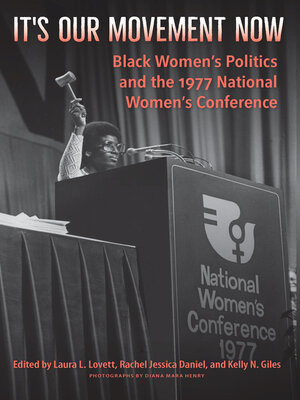It's Our Movement Now
ebook ∣ Black Women's Politics and the 1977 National Women's Conference
By Laura L. Lovett

Sign up to save your library
With an OverDrive account, you can save your favorite libraries for at-a-glance information about availability. Find out more about OverDrive accounts.
Find this title in Libby, the library reading app by OverDrive.



Search for a digital library with this title
Title found at these libraries:
| Library Name | Distance |
|---|---|
| Loading... |
Profiles of influential Black women activists at a historic moment
This volume offers a panoramic view of Black feminist politics through the stories of a remarkable cross section of Black women who attended the 1977 National Women's Conference. These women advocated for civil and women's rights but also for accessibility, lesbians, sex workers, welfare recipients, laborers, and children.
The women featured in this book include icons Coretta Scott King and Michelle Cearcy, a teenager who served as a torchbearer at the conference. Contributors offer insights into the lives of Gloria Scott, Dorothy Height, Freddie Groomes-McLendon, and Jeffalyn Johnson. The profiles include activist organizers Georgia McMurray, Barbara Smith, Johnnie Tillmon, Addie Wyatt, and Florynce Kennedy. The hard-won achievements of politicians are examined and celebrated, including those of Barbara Jordan, Shirley Chisholm, Maxine Waters, C. Delores Tucker, the first Black female secretary of state for Pennsylvania, and Yvonne Burke, one of the first Black women elected to Congress and the first representative to give birth while serving. The final profiles cover Clara McClaughlin, reporter Melba Tolliver, and photojournalist Diana Mara Henry, who shared the details of the conference and the continual work being done by Black women with others through various media channels. This book places the diversity of Black women's experiences and their leadership at the center of the history of the women's movement.
Publication of this work made possible by a Sustaining the Humanities through the American Rescue Plan grant from the National Endowment for the Humanities.







